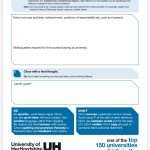
A Statement of Purpose (SOP) is typically required by educational institutions and organizations that offer higher education opportunities such as universities, colleges, scholarship programs, and fellowships. The SOP is commonly requested as part of the application process for various academic programs, including undergraduate and graduate programs, research positions, and study abroad opportunities.
IELTS Speaking Test: Tips and Strategies for Success
Here are some individuals who may need to submit an SOP:
It’s important to note that the specific requirements for an SOP may vary depending on the institution or program. It’s always recommended to carefully review the application guidelines provided by the respective educational institution or organization to understand if an SOP is required and what specific information or prompts should be addressed in the document.


SOP Samples
Embarking on a journey of higher education is an exciting chapter in one’s life. Whether you’re applying for a graduate program, scholarship, or fellowship, a well-crafted Statement of Purpose (SOP) is an essential component of your application. Your SOP provides an opportunity to showcase your passion, goals, and suitability for the program of your choice. To help you navigate the SOP writing process, here’s a comprehensive guide on how to write a compelling SOP for higher study.
1️⃣ Understand the Purpose: Before diving into writing, it’s vital to grasp the purpose of an SOP. The SOP serves as a personal narrative that highlights your academic background, career aspirations, relevant experiences, and motivations for pursuing higher education. It allows the admissions committee to assess your fit for the program and gauge your potential for success.
2️⃣ Research the Institution/Program: Thoroughly research the institution and program you’re applying to. Familiarize yourself with their mission, values, faculty, and curriculum. Tailor your SOP to align with the specific aspects that attracted you to the program. Demonstrating a genuine interest in the institution showcases your dedication and commitment.
3️⃣ Start with a Compelling Introduction: Begin your SOP with a captivating opening paragraph that grabs the reader’s attention. Consider starting with an anecdote, a thought-provoking question, or a compelling statement that reflects your passion and sets the tone for the rest of your SOP.
4️⃣ Highlight Academic Background and Achievements: Discuss your academic background, including relevant coursework, research projects, publications, or presentations. Emphasize any awards, scholarships, or honors you have received. Link these experiences to your future goals and how they have shaped your interest in the field of study.
5️⃣ Showcase Relevant Experiences: Discuss any practical experiences, internships, or work experiences that are relevant to your field of study. Explain how these experiences have contributed to your growth, skills, and knowledge. Highlight specific projects or tasks that demonstrate your abilities and make you a strong candidate.
6️⃣ Outline Your Career Goals: Clearly articulate your short-term and long-term career goals. Explain how the program you’re applying to aligns with your aspirations and how it will equip you with the necessary skills and knowledge to achieve them. Be specific and provide examples of the impact you aim to make in your chosen field.
7️⃣ Demonstrate Fit and Research Interests: Discuss your research interests and how they align with the faculty or research opportunities available at the institution. Mention specific professors or research initiatives that resonate with your interests. Showing a strong alignment between your research goals and the program’s resources enhances your candidacy.
8️⃣ Convey Personal Motivation: Share your personal motivations for pursuing higher education in your chosen field. Discuss the experiences or personal challenges that have influenced your decision and how they have shaped your character, values, and dedication to your academic pursuits.
9️⃣ Show Reflective and Critical Thinking: Demonstrate your ability to think critically and reflect on your experiences. Discuss how challenges or failures have shaped your growth, resilience, and problem-solving skills. Admissions committees appreciate candidates who can learn from setbacks and showcase a growth mindset.
🔟 Edit and Proofread: Once you’ve completed your SOP, revise and edit it meticulously. Ensure that the language is clear, concise, and free of grammatical errors. Seek feedback from mentors, professors, or trusted individuals who can provide valuable insights and suggestions.
Remember, your SOP is an opportunity to present your unique story and passion. Be genuine, authentic, and let your personality shine through
Easy Way To Learn British Accent
Remember to adhere to any specific guidelines provided by the institution or program you are applying to. Also, ensure that your SOP is well-written, concise, and error-free. It is always beneficial to seek feedback from mentors, professors, or professionals in the field to improve the quality of your SOP.
Here are two fictional examples of Statements of Purpose (SOPs) for higher study. Please note that these are not real SOPs, but they can serve as a general reference to understand the structure and content of an SOP:
Example 1: Statement of Purpose for a Master’s Program in Computer Science
Introduction: Ever since my early encounter with computers, I have been captivated by their potential to revolutionize the world. This fascination, combined with my passion for problem-solving and innovation, has led me to pursue a Master’s degree in Computer Science. Through this Statement of Purpose, I aim to demonstrate my strong commitment, academic background, and future aspirations in the field.
Academic Background and Achievements: I completed my undergraduate studies in Computer Science with distinction from XYZ University. The comprehensive coursework exposed me to various programming languages, algorithms, and database systems. I consistently excelled in my studies, earning a place on the Dean’s List for four consecutive semesters. Furthermore, I had the privilege of participating in a research project focused on developing an intelligent recommendation system, which sharpened my research and analytical skills.
Research Experience: During my undergraduate years, I actively engaged in research activities, collaborating with professors and fellow students. One notable project involved designing an algorithm to optimize network routing, which was presented at an international conference. This experience ignited my passion for research and reinforced my decision to pursue advanced studies.
Work Experience and Internships: I completed a summer internship at a leading software development company, where I worked on a team responsible for building a scalable e-commerce platform. This opportunity enhanced my understanding of software development methodologies, teamwork, and problem-solving in real-world scenarios. It also emphasized the importance of creating user-centric designs and efficient algorithms.
Motivation and Goals: My motivation to pursue a Master’s degree in Computer Science stems from my desire to deepen my knowledge in emerging technologies such as artificial intelligence and machine learning. I am particularly fascinated by their applications in solving complex problems and driving innovation in various industries. My goal is to contribute to the development of intelligent systems that can revolutionize healthcare and improve people’s lives.
Fit with the Program: After thorough research, I am convinced that the Master’s program in Computer Science at ABC University is the ideal platform to nurture my aspirations. The program’s diverse curriculum, renowned faculty, and state-of-the-art research facilities align perfectly with my research interests. I am particularly excited about the opportunity to work with Professor X, whose expertise in machine learning closely aligns with my research goals.
Conclusion: In conclusion, I am eager to immerse myself in the stimulating academic environment of ABC University, where I can contribute to groundbreaking research and collaborate with like-minded peers. I am confident that this Master’s program will equip me with the necessary skills, knowledge, and opportunities to make a significant impact in the field of Computer Science.
Example 2: Statement of Purpose for a Ph.D. Program in Psychology
Introduction: Throughout my academic journey, I have been fascinated by the complexities of the human mind and behavior. This fascination, combined with my passion for research and my desire to make a meaningful contribution to the field, has driven me to pursue a Ph.D. in Psychology. Through this Statement of Purpose, I aim to articulate my academic background, research experiences, and future aspirations in the field of psychology.
Academic Background and Achievements: I completed my Bachelor’s degree in Psychology from XYZ University, where I developed a strong foundation in various subfields of psychology. The coursework deepened my understanding of cognitive processes, social behavior, and research methodologies. I consistently achieved high grades and was awarded the university’s Psychology Student of the Year for my outstanding academic performance.
Research Experience: During my undergraduate years, I actively participated in research projects, working closely with faculty members and fellow researchers. One significant project involved
To improve your English skill download our books here:
 English PLS : ENGLISH- PRACTICE
English PLS : ENGLISH- PRACTICE
 Easy Way To Learn British Accent
Easy Way To Learn British Accent
Great Read Can i leave my thoughts ?! –
Thanks for reading , Love The Blog !!
Please check out my new blog for all things Dog – http://www.pomeranianpuppies.uk
great post – thanks !!
Download 50 Amazing Keto Recipes –> http://www.ketokingrecipes.wordpress.com